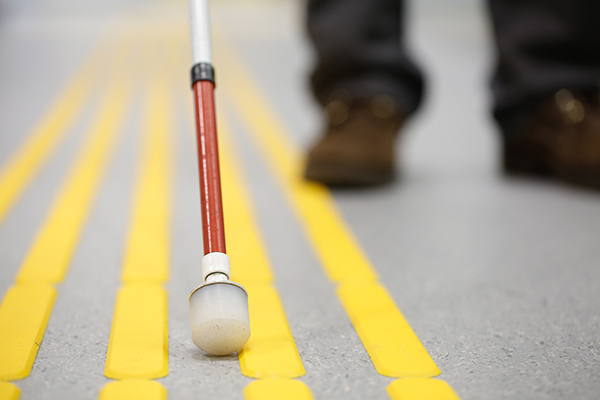Latest News Archive
Please select Category, Year, and then Month to display items
27 August 2018
Photo Barend Nagel
 Arina Engelbrecht’s vision is for all Kovsies to lead holistically healthy lives.
Arina Engelbrecht’s vision is for all Kovsies to lead holistically healthy lives.
How do you start living a healthy lifestyle? Arina Engelbrecht, a wellness specialist in the Employee Wellness Division at the University of the Free State (UFS) says it only takes a few changes. Her passion is to motivate people to live a balanced life.
Being active enables a person to live life to the full. “Aim to exercise 150 minutes a week, which equates to 30 minutes five times a week in order to experience health benefits like prevention of lifestyle illnesses, better sleeping patterns, decreasing stress or anxiety and feeling more energetic,” says Engelbrecht.
Some of the initiatives Engelbrecht and her team drive are the Healthy Lifestyle Challenge, Park Runs in Bloemfontein, and the Healthy4Life Pedometer Challenge, which encourage staff members to become more physically active. “Everything we do, think or feel is influenced by what we eat! It is therefore important to eat a balanced diet. Healthy food = quality fuel = good health = sustained energy = peak performance,” she explains.
Pedometer Challenge
In the space of eight weeks 240 staff members from all campuses walked 54 000km as part of the Pedometer Challenge. Engelbrecht and her team mobilised 53 active teams from all three campuses. Three of these teams emerged as the winners as they exceeded the target of 1 300km which is the equivalent of walking to Cape Town. In September 2018 the Challenge is going national as the North-West University competes against UFS.
Celebrating women
This Women’s Month Engelbrecht’s message to women of Kovsies is: “We must start embracing who we are and start believing in ourselves, whether it is in the workplace, in business, or at home.”
Tactile paving assists visually impaired
2017-10-28

Tactile paving is being installed at pedestrian crossings to assist
visually-impaired persons at the UFS.
Photo: Supplied
Crossing roads and accessing buildings has always been a challenge for people with visual impairments. They had to rely on peripheral sounds, such as car brakes and cues. However, after the installation of tactile paving – paving with special textures assisting the visually impaired to feel the difference between walking around on campus and crossing the road, this will no longer be a problem at the University of the Free State (UFS).
This is one of several developments that University Estates’ Department of Facilities Planning has in the pipeline for 2017 in order to ensure that the university attains its key component in providing a high-quality student experience.
Maureen Khati, Assistant Director of Project Management: Facilities Planning, says, “We saw the need to install these paving blocks in strategic spaces, as identified by the Center for Universal Access and Disability Support (CUADS).” She says these blocks will make it easier for people with visual impairments.
Special features designed to aid visually-impaired persons
These installations have special features that will assist those students and employees with limited vision or blindness to navigate through pedestrian crossings and the different campus buildings. The university chose a unique design of tactile paving that focuses on warning and directing those with visual impairments.
UFS eager to improve accessibility and mobility
The university, and all the stakeholders involved in this initiative, are delighted to be embarking on this project and are looking forward to its successful execution. To improve accessibility and mobility, more accessible entrances and exits will be built, effective signage will be installed inside and outside buildings, but the most important aspect is that dedicated seating space will be made available in lecture rooms for special-needs students.
Khati says, “More focus has been put on installing ramps in all buildings to make them more accessible for people with disabilities, as well as other needs required to enhance accessibility at the UFS.”
For the UFS, this initiative is one of many to come, as extensive research is being done and priorities are implemented accordingly.